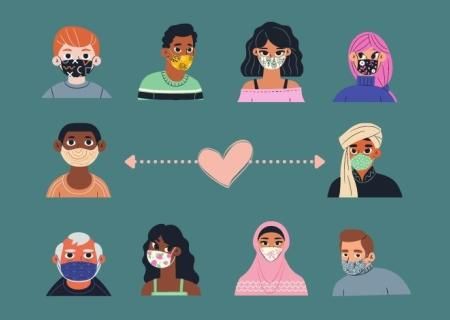For over two years, we were at the core of the national response to the pandemic, providing extensive evidence on the mental health impact of the Coronavirus pandemic alongside comprehensive online support.
We were one of the first organisations in the world to raise the emerging issue of the mental health impact of the COVID-19 pandemic.
We published our first thoughts and advice on the subject on February 13, 2020, three weeks before the UK Government published its own COVID-19 action plan and one month before the World Health Organisation declared COVID-19 a pandemic.
During this time, we published evidence-based advice on a wide range of subjects related to mental health and the pandemic. This covered support for key workers, advice for people with pre-existing mental health problems, managing relationships, dealing with loss and bereavement, being at home in abusive relationships, managing your finances and uncertainty, returning to work as lockdown eases, and many more.
We translated much of our advice into the most commonly spoken languages in the UK, including Welsh, Arabic, French, Farsi, Somali, Tiginya and Urdu. We co-produced content for young people with Young Leaders. We developed a four-nations page that linked directly to summary guidelines and laws for where people lived. We ensured that any significant changes to guidelines or legislation were continuously updated on our website.
Our coronavirus content received more than 3 million page views. This included 500,000 people who read our advice about looking after your mental health in the first six months after March 2020. Over 22,000 people read our Farsi-translated content, 30,000 parents read our advice about supporting the mental health of their babies and children, and 100,000 parents and teachers read our advice about returning to school after lockdown during the transitions of 2020 and 2021.
We were one of the first organisations in the world to start comprehensively researching the mental health effect of the COVID-19 pandemic. Our Mental Health in the Pandemic study was ready over two weeks before the first UK lockdown. Across our adult and adolescent population samples, we collected 17 waves of data over two years, with over 80,000 study participants, including 42 interviews and six qualitative focus groups. We hold 1.5 million data points – a wealth of evidence for the COVID-19 pandemic and any future health crises.
We were proactive in guiding the UK mental health conversation. Our research findings were covered extensively in mainstream and local media, with a combined reach of 265 million people. Media outlets were wide-ranging, including the BBC, ITV, Sky News, The Guardian, Financial Times, Daily Mail, BBC Radio 5 and BBC Radio Scotland, BBC Scotland Breakfast TV, The Times Scotland, and the New York Times. Quotes from our study were used repeatedly by the Press Association and reproduced internationally.
We routinely shared our evidence with Public Health or Department of Health officials in all four nations of the UK. Our findings were featured in Public Health England’s pandemic mental health and well-being real-time surveillance reports. The results of our study were included in the Mental Health Action Plan for Northern Ireland (May 2020). Officials of the Department of Health and Social Care used our evidence on the risk of suicide for those facing unemployment. We remained at the heart of national conversations and strategies by being members (Dr Antonis Kousoulis) of Public Health England’s COVID-19 Mental Health and Psychosocial Support Reference Cell. Our evidence has informed multiple national inquiries and guided local strategies.
We have published several research outputs, which have been cited academically over 100 times. We will continue working to make our evidence and data available for future research.
Our studies

Key findings from the ‘Coronavirus: Mental Health in the Pandemic’ Study
